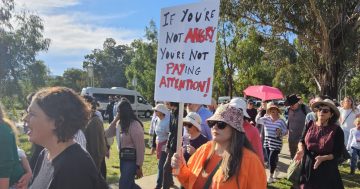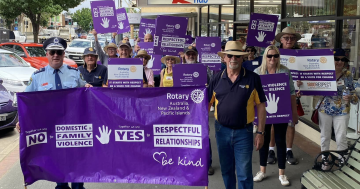
Targetting domestic violence with Men’s Behaviour Change programs.
Domestic Violence Crisis Service’s (DVCS) Room4Change program is only available to men. DVCS does not believe that all or only men use violence against their female partners. What we do know, however, is that most violence is committed by men and overwhelmingly experienced by women. This fact may be very difficult for the small number of men who are subjected to violence by their female partners and the hurt they have experienced is not to be diminished. Room4Change, however, seeks to address this majority by working with men who use violence and controlling behaviours within their intimate partner and family relationships.
Steven was referred to the Room4Change program wanting support in relation to his anger. Steven also presented with diagnosed anxiety and depression with regular thoughts of ending his own life.
Steven has one son, Daniel, four years old. Daniel lives primarily with his mother Sarah, Steven’s ex-partner, although he spends two days and one night per week with Steven.
In the early days of the program, Steven was ambivalent about his use of violence or abuse within his relationships. Steven spoke often of how unfair it had been for Sarah to call the Police, as they had just had an argument and now he had to live with the consequences including having charges and that was impacting on his ability to work.
Steven primarily identified that he wanted to take part in the Room4Change program because he did not want his son to be frightened of him, and he wanted to be a better parent. Steven also identified that he had threatened violence in the past.
Steven was allocated a case manager through the Room4Change program, whom he met weekly. As Steven worked full-time, he met with his case manager after work hours, usually on a night prior to group work, or alternatively during his lunch break. Steven’s case management reflects the group work content that he works on week to week, so as to reinforce the session content, as well as explore more thoroughly the personal steps that he can take to be non-violent in his relationships.
In the initial stages of the 20-week group work, Steven was particularly concerned that his ex-partner was not being ‘held to account’ for her part in ‘ruining his life’. Around session 3 of the 20 weeks, Steven was beginning to be challenged by the other men, in the way he shifted blame regarding his own actions.
By the time the group sessions built up to the men being interviewed as their partners responded to questions about the men, Steven was one of the first to put himself forward. Steven sat opposite one of the facilitators and was interviewed as if he was his ex-partner Sarah, recounting how they had met, the good times in the relationship, but Steven also chose at this point to self-disclose that he had held a knife to Sarah in the past, and threatened to kill her. Steven spoke about the fear that he and Sarah felt, and how this incident then impacted all future interactions that they had as a couple.
Steven completed the 20-week group, reporting that he felt supported to disclose information about himself that he would not otherwise have done. Steven also spoke about the impact of hearing the other men discuss their lives and stories, and that this had had a large impact on him not feeling alone in the changes that he needed to make.
At the conclusion of the 20-week group, Sarah stated that she had noticed a significant change in the way she was able to communicate with Steven after he completed the program. She has reported feeling safer with Steven as well as reduced anxiety when needing to communicate with him in relation to co-parenting. Sarah also reported having broader conversations with Steven including about their lives in general, not just about Daniel, and feeling safe to do this.
Steven has reported that he is making time to spend with Daniel doing something that he chooses. Steven spoke about going bike riding with Daniel, and how even though he initially did not want to do this, he valued the experience.
Sarah has reported an improved co-parenting relationship with Steven. This has also been reflected in Steven’s own self-assessment of co-parenting with Sarah.

Do Men’s Behaviour Change Programs Work?
A comprehensive snapshot of 300 Australian men who were part of the Behaviour Change program, and their partners (or ex-partners), over two years, gives cause for optimism. A 2016 Monash University study found:
- The number of men inflicting violence fell by half across all categories of abusive behaviour, from physical violence to demeaning behaviour,
- Their violence didn’t just shift from one area to another. It reduced in all areas, with 65 per cent of the men reporting they were either no longer violent, or almost violence-free, after two years,
- About 80 per cent of men saw their abusive behaviour as serious two years after their program finished, compared with 60 per cent before the program.
For more information, visit the DVCS website.





















